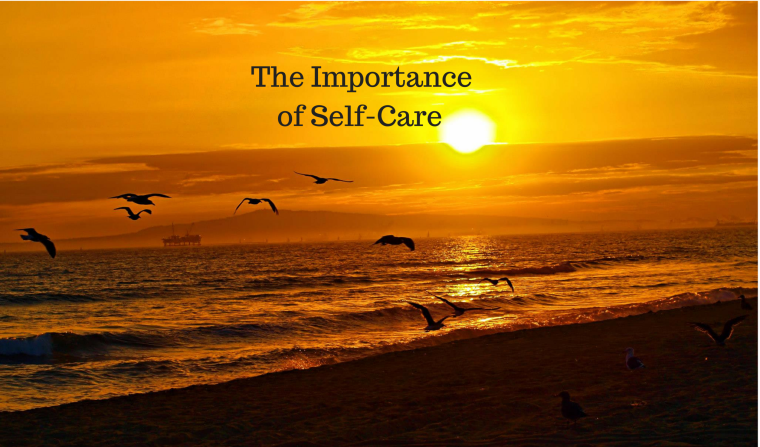I’ve been thinking a lot about self-care recently. Last Friday I had the privilege of speaking to a group of mothers of young children on the topic “Self-Care for Busy Moms.” We discussed why it’s so hard to practice good self-care, the difference between self-care and selfishness, and practical ways to implement healthy self-care. It was a valuable time. It made me realize that this is an issue not just for mothers with young children, but for all of us. All of us need to learn how to practice healthy self-care. This is such an important issue that I will be writing a series of blog posts on this topic.

To start with, let’s discuss the obstacles to self-care. What makes it so difficult for us to practice good self-care, to attend to our own basic needs in a healthy, consistent way?
1) We’re Too Busy
Probably the number one reason is that we have so much to do, so much that feels way more urgent and important than taking care of ourselves. This was definitely true for the moms I met with. When you are providing care for children below the age of five, you are working round-the-clock tending to other people’s needs — fitting in time to even notice your own needs seems impossible.
But even if you’re past that caregiving stage of parenting or don’t have children, the pressing urgency of the to-do list makes self-care difficult.
In our culture that values productivity, where we measure our worth by our performance, healthy self-care often doesn’t even make it onto our radar screen. Granted, we could prioritize basic self-care and start making time to attend to our own soul and to replenish ourselves. But then we bump up against another obstacle to good self-care…
2) Self-Care Feels Selfish
When we make self-care a priority, we might hear a voice inside our heads, telling us that we’re being selfish, that we’re not thinking of others enough, or that we’re not doing what we “should” be doing. Our work ethic says that self-care is laziness, and we have no response.
Sadly, this is often especially true in Christian circles. We’re taught to put others first and to sacrifice our own desires and needs for the good of others — which are valuable lessons! — but we’re not usually taught the corresponding importance of healthy, unselfish self-care. When we relax we feel guilty, so we carry on, busy and exhausted, neglecting the health of our own souls.
3) No Support
Very few of us have people in our lives who remind us to take care of ourselves. Our bosses don’t tell us to care for our souls; our preschoolers don’t encourage us to make sure we get a good night’s sleep. No one holds us accountable to put self-care on our schedule. The choice to prioritize healthy self-care is generally a very private one, and the practice of it can feel lonely at times.
4) We Don’t Know What to Do
Even if we want to make self-care a priority in our busy lives, we still might have a problem — we just don’t know what healthy self-care looks like! Most of us didn’t grow up in a culture where attention to the needs of one’s soul was modeled for us, so we aren’t really sure what it involves.
How can we care for our souls? What does healthy, unselfish self-care actually look like? What are some practical tips for developing the ability to practice good self-care? These are questions we will address in this series on self-care.
My hope is that by addressing these obstacles and discussing the importance of self-care, we will feel empowered and inspired to take care of our souls, to make time in our busy schedules to practice healthy self-care, for our own benefit and the benefit of those around us.
Question: What do you think? What makes it hard for you to practice good self-care? You can leave a comment by clicking here.

I’ve found I often sabotage self-care in ways that actually feel self-indulgent. It’s strange. What I’m thinking of is sleep. I will disregard my need for sleep more readily when I’m playing a game or reading a book. It feels okay to indulge myself at the cost of losing sleep when the only one I’m hurting is myself. As if hurting myself is not a problem.
Sondy, that is so true. I think one of the ways we all sabotage self-care is by slipping into self-indulgence. I see self-care as requiring both nurture and healthy limits — and when we don’t have the healthy limits, we can become self-indulgent. I wrote more about this today and will post it soon!
Thank you for this series. It’s funny, I woke up this morning and I acknowledged to myself that I feel so much better because I’ve been practicing self-care for the last few days. I had really depleted myself physically, emotionally and spiritually. I have been involved in Codependents Anonymous in the past and in that fellowship self-care is a primary principle. For me, I have a tendency to put my partner first and lose sight of my own needs. In your subsequent article posted yesterday you quote the Bible and point out that Jesus needed time away from others. Thank you for these insights.
Thank you, Deborah! It is SO true that taking care of ourselves really does make a huge difference in our lives — I know when I practice good self-care consistently I feel so good that I wonder why I so easily let it slide. For those of us who have codependent tendencies, self-care is crucial! Thanks for the affirmation!